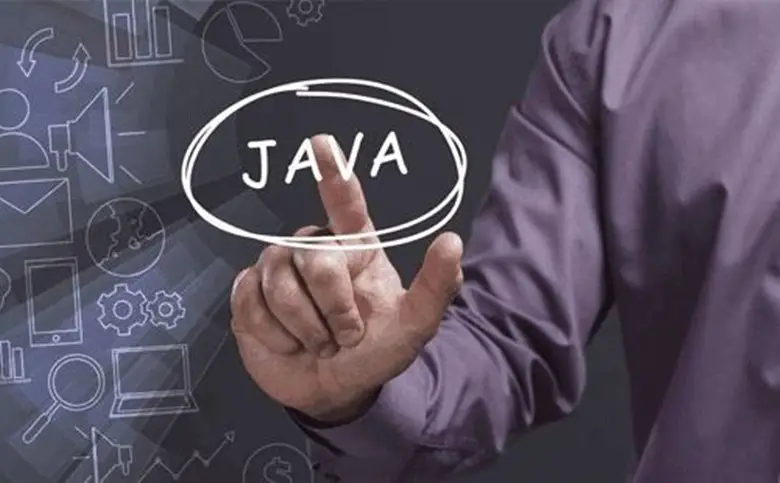
JAVA programmers share their job-hunting experience, a must-see for high-paying interviews!
JAVA programmers share their job-hunting experience, a must-see for high-paying interviews!
Many programmers will complain that it is difficult to find a job, especially programmers who have just finished their internship or have been working for about a year or two. In fact, it is quite embarrassing. So today, I will share some job search experience with programmers, hoping to help friends in need.
The first step in applying for a job is to create a good resume , which is your stepping stone.

1. Resume making
It takes a lot of work to write a resume. After all, your resume is the first impression you make on others, and that impression determines your chances of an interview. The highlight of the resume is a short word. The production of the resume should not be too much or too little. 2-3 pages are best.
The three important points of a resume are who I am, what I want to do, and what I can do.
The first point is basic personal information.
In addition to personal name, place of origin, current address, etc., it is also necessary to add the graduate school, major, working hours, etc. Fill in the important information, and write less or no irrelevant information. such as height, weight, etc.
The second point is employment intention.
It is important to place the typography under the personal information if possible. The job-seeking intention is mainly about the position you expect to work, the address of the job, and the salary. It is recommended to add a related job after the job position, which can slightly improve the interview chances. For example, java engineer and related jobs. Salary is recommended to fill in the interview, too high or too low will only reduce the interview chances.
The third point, which is the most important point of HR, is the technical ability.
As far as writing the mastered technology and related proficiency, it is best to use more technical keywords. After all, many HR search by keywords. Such as JAVA, SQL, linux and so on. This type of layout is also recommended to be placed under the job-seeking intention. The rest is work experience and project experience. The work experience is not discussed in detail. What matters is project experience.
The project description, personal advice, the first point, you have to tell others what your project is for, why it serves the crowd, and how to use it. Don’t explain too much what technologies are used and how to develop projects using these technologies. This point can be roughly mentioned. After all, the space is limited, and you can talk to the interviewer about the use of technology.
The second point is that the project is responsible for the modules and technologies developed. This needs to let others know what you have done in this project and the technologies you have used. The third point, project performance, depends on the individual. If you don’t know how to write, you can write what the individual learned in the project, or how to solve the problems encountered.
As for self-evaluation, awards, etc., you can leave it at the end to write, write your real situation, it is best not to use the template on the recruitment website.

2. Resume delivery
The delivery of resumes depends on the individual. Zhilian, 51, BOSS Zhipin, Lagou, and Lipin are fine, especially the last three, which are dedicated to serving the IT industry. You can try more.
It would be better if there was an introvert. Now WeChat recruitment and the like are also good, and there are some community recruitment and so on, you can also take a look.
Note: If there is an interview fee or the like, this kind of thing does not need to be considered. When submitting your resume, you can go to the website to check the relevant information of the company.

3. Interview preparation
After preparing your resume, you should do some relevant interview preparation.
First of all, it is the written test question, which is a hurdle that junior programmers cannot get around.
The written test questions are generally issued by the company, unless you are a big cow, you can choose not to do it. So, just be prepared.
First of all, basic related interview questions should be done well.
Some Java-related interview questions are available. There are also interview questions on some websites, such as Niuke.com and MOOC.com.
Some of the more common problems are listed below.
JAVA
1.5 commonly used java-api packages.
2. Five methods commonly used in the String class.
3. Notes on API interface development.
4.TCP/IP, HTTP protocol.
Collection related questions (emphasis)
1. Implementation and differences of HashMap, TreeMap, Hashtable, LinkedHashMap, ConcurrentHashMap, ArrayList, LinkedList and the like.
2. Those in the above set are thread safe, those are not.
3. Use these collections in those scenarios.
4. The three interfaces of List, Map and Set have their own characteristics when accessing elements.
Thread related issues (emphasis)
1. Several ways to create threads.
2. Thread synchronization method.
3. The difference between wait and sleep.
4. The difference between the Runnable interface and the Callable interface.
5. How to achieve thread safety.
Framework related knowledge (this one is not much)
1. The difference between Mybatis# and $.
2. The difference between Hibernate and Mybatis.
3. The difference between Spring MVC and Struts2.
4.Hibernate’s caching mechanism.
5. What is Hibernate lazy loading.
6. Why use spring.
SQL (mainly investigate Group by and Order by related knowledge)
1. Query the students with the highest grades in each class.
2. Find the second student in each class.
3. Check the top three students in each class according to the class.
4. Find all the information about the third-to-last employee onboarding time.
5. The employees whose salary ranks 2–8 after the salary ranking.
6. Ranking by salary, the ranking starts from 1, and the salary is the same and the ranking is the same (if the two are tied for the first place, there is no second place, and the ranking continues from the third place).
7. Use a sql statement to retrieve all the student names with duplicate names and the number of duplicate records.
JavaScript/JSP/Servet (these are generally basic questions)
1.JSP’s built-in objects and their functions.
2. Common tags of JSTL.
3. Servlet life cycle.
4. The difference between URL and URI.
5. The difference between Ajax synchronous and asynchronous.
6. The process of sending asynchronous requests using ajax.
other
1. The difference between & and &&.
2. The difference between == and equals.
3. Automatic unboxing/boxing related issues for int and Integer.
4. The difference between IO and NIO.
5. The difference between final, finally, and finalize.
6. The difference between Overload and Override.
7. The difference between String, StringBuffer and StringBuilder.
8. How to realize shallow clone and deep clone.
9. Implementation and optimization of the singleton pattern.
10. Implementation of sorting (bubble, select, quick, etc.).
11. Remove duplicate elements (actually rewrite equals and hashcode).

4. Interview Skills
This aspect of personal ability is nothing more than two aspects, breadth and depth.
The technique is very simple, that is, say what you are good at. If you have broad but not deep technical mastery, you can talk a little more about your technical breadth, and by the way, you can mention your own advantages. For example, you can learn new technologies quickly; if you have deep technical mastery, but not wide, you can talk more about the depth of your mastery. Point, you can mention your degree of specialization in learning this. If there are no obvious advantages in these two points, you can try to say from the project business, it is best to understand the project thoroughly.
Remember to be honest in your interviews with the interviewer and don’t cheat. If you encounter something you don’t know or don’t know very well, just skip it, and it’s best to guide the interviewer to your area of expertise.

5. Interview Summary
After the interview , it is best to summarize. After all, every interview is a reward. It would be great if you could write down the questions and insights you encountered during the interview.
When looking for a job, in addition to doing some relevant interviews and preparing to familiarize yourself with previous projects, you should also learn new knowledge. After all, the more you learn, the better your chances of successfully landing a job. Moreover, in the IT industry, technology is developing too fast. If there is no motivation to learn new knowledge, it will eventually be eliminated.
Because learning is really boring. Learning is a long-term investment, and it is difficult to see benefits in the short term, while entertainment is a short-term investment, and you can see benefits in a short time. Therefore, it is best to set a goal for yourself in learning this area, learn a little every day, and you will reach it slowly. If you’re not motivated, set yourself a reward. This can stimulate interest in learning.
Another point is that what can be done today should never be left to tomorrow. After all, people are lazy. You have to believe in yourself, what you can do today will not be done tomorrow.
Finally, I wish you who are looking for a job to find your favorite company!
CAREER PATHS, Changing Jobs, JOB HUNTING, Job Interview Tips






